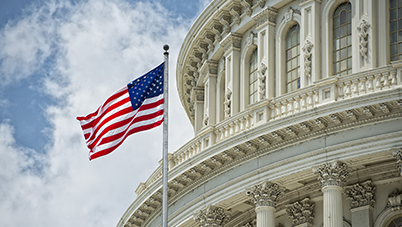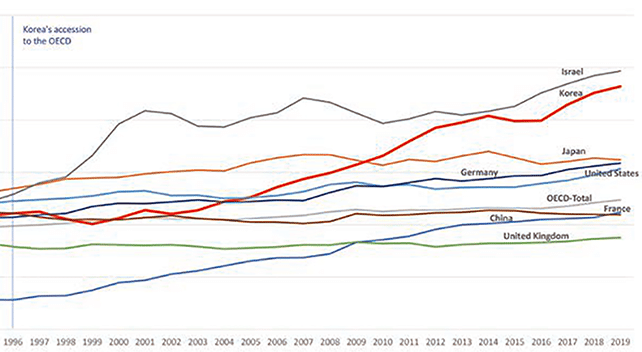DOJ Antitrust Division tightens leniency requirements

Leveraging AI on Supply Chain and its effect
February 10, 2022
E-Discovery in Australia: Part 1- Expected Growth of Australia’s Legal Services Market
November 30, 2022
On April 4, the DOJ Antitrust Division announced an update to their leniency policy and issued a revised set of frequently asked questions (FAQ).
“Antitrust Division Leniency Policy allows the first individual or company to self-report its involvement in an antitrust cartel to avoid prosecution if it cooperates with the Division’s investigation and prosecutions, and meets other conditions.” [1]
The most significant change to the policy was that it “now also requires that a corporate applicant promptly self-report after discovering its wrongful conduct and undertake remedial measures to prevent reoffending.” [1]
Although timely reporting and remedial measures have long been important elements that the DOJ takes into consideration, experts view these updated policy materials as a sign that the requirements for receiving leniency have become tougher.
The DOJ notes that for remedial measures “some applicants may need to implement new or improved formal compliance programs.” [2] The DOJ assesses compliance programs based on the questions and factors laid out in the Evaluation of Corporate Compliance Programs in Criminal Antitrust Investigations Guidance. [3]
As to whether the DOJ will approve of a company’s proposed remedial measures, the key seems to be in the details. Richard Powers, the Antitrust Division’s Deputy Assistant Attorney General for Criminal Enforcement, in his remarks at the American Bar Association Antitrust Division Spring Meeting, emphasized that “the remedial measures in the plan must be appropriately tailored to prevent recidivism.” [4]
The revised Leniency Policy FAQ goes into further detail. “Whether and what remediation is appropriate depends on the nature of the illegal activity, the nature of any harm caused, and the applicant’s role in it. With respect to the risk of recidivism, the applicant will be expected to conduct a thorough analysis of causes of underlying conduct (i.e., a root cause analysis) and undertake remedial efforts tailored to address the root causes.” [2]
What does this mean for you?
Companies can expect an increase in antitrust litigation. DOJ investigations often lead to further costly civil litigation. This means that there is an increased litigation risk for companies, especially large multinationals that compete in multiple industries, but it also means that this risk is very complex.
A robust compliance program is a good way to reduce that risk. The program must be well designed and properly implemented to be effective, but it does not necessarily have to be expensive. Including our own email monitoring, there are many cost-effective tools available. Please consult an antitrust lawyer.
Source:
- Antitrust Division Updates Its Leniency Policy and Issues Revised Plain Language Answers to Frequently Asked Questions
https://www.justice.gov/opa/pr/antitrust-division-updates-its-leniency-policy-and-issues-revised-plain-language-answerst - Revised Leniency Policy FAQs
https://www.justice.gov/atr/page/file/1490311/download - Evaluation of Corporate Compliance Programs in Criminal Antitrust Investigations
https://www.justice.gov/atr/page/file/1181891/download - Heard on Day One of 2022 Antitrust Law Spring Meeting
https://www.jdsupra.com/legalnews/heard-at-day-one-of-2022-antitrust-law-9089140
By Anitha Henderson, Esq. (Attorney Manager)
DOJ反トラスト局リニエンシー制度の条件強化を発表
4月4日、米国司法省反トラスト局がリニエンシー制度の改正を発表し、リニエンシーポリシーに関する良くある質問を発行しました。
「リニエンシー(leniency)とは、企業又は個人が、司法省反トラスト局に対し、最初にカルテルにかかる違反行為を申告し、かつ同局の調査に全面的に協力するなどの条件を充足した場合に、刑事訴追を免れる制度である 」。1
リニエンシー制度の最も重大な変化は、2つの追加条件が加わったことです。今後リニエンシーを求める企業は、不法行為が発覚されてから速やかに自己報告することと、徹底した再発防止策の設置が義務付けられました。2
今までDOJは自己申告のタイミングと、再発防止策は参考としていましたが、このように明確な条件になったことでリニエンシーを求める企業のハードルが高くなったと考えられます。
リニエンシーを希望する大手企業は、再発防止策として、コンプライアンスプログラムの設置・改正の必要性が高いと考えます。DOJは起訴段階及び量刑段階における企業の競争法コンプライアンスプログラムの評価方法に関するガイドライン (Evaluation of Corporate Compliance Programs in Criminal Antitrust Investigations ) に従ってコンプライアンスプログラムの有効性を評価します。 しかし、DOJはどのようなコンプライアンスプログラムが効果的かについては指定していません。
リニエンシー申請の際、提案する再発防止策を認めてもらうには、再発防止策の具体性が鍵のようです。ABA(アメリカ法曹協会)春季会合では、DOJ反トラスト局Richard Powers次長はリニエンシーの申請者は条件付きリニエンシーレターを貰うために「計画には対象となった不法行為の再発防止対策を含まなければなりません」と強調しました。
改正されたリニエンシーポリシーに関するよくある質問では、さらに詳しく述べられています。「再発防止対策の妥当性は不法行為の質、被害、申請者の役割によります。再犯のリスクについて、申請者は不法行為の因果関係を徹底的に分析し、根本的な原因を対象とした再発防止対策を取ることを期待しています」。
今後反トラストに関する捜査、裁判が増加するでしょう。また、DOJの捜査は民事裁判につながることがよく見られます。従って、DOJ反トラスト局が活発的に動いていることで、企業にとっての訴訟リスクがかなり高まると考えられます。
このようなリニエンシー制度の改正により企業が将来生じうるリスクを軽減するには有効なコンプライアンスプログラムを整備することが重要です。有効なコンプライアンスプログラムは不法行為の原因などを考慮したうえで設計する必要ありますが、必ずしも高価である必要はありません。競争法を専門にする弁護士にご相談ください。
Source:
- 企業の独占禁止法コンプライアンス強化に向けた日米欧における競争法違反発覚後の実務調査報告書
https://www.meti.go.jp/policy/kyoso_seisaku/tyousahoukokusyo.pdf - now also requires that a corporate applicant promptly self-report after discovering its wrongful conduct and undertake remedial measures to prevent reoffending.”
Antitrust Division Updates Its Leniency Policy and Issues Revised Plain Language Answers to Frequently Asked Questions [DOJ Press Release]
https://www.justice.gov/opa/pr/antitrust-division-updates-its-leniency-policy-and-issues-revised-plain-language-answers - 危機管理ニューズレター 2019年 7月31日号
https://www.nishimura.com/sites/default/files/newsletter_pdf/ja/newsletter_20190731_corporate-crisis-management.pdf - Evaluation of Corporate Compliance Programs in Criminal Antitrust Investigations
https://www.justice.gov/atr/page/file/1181891/download - “the remedial measures in the plan must be appropriately tailored to prevent recidivism.”
Heard on Day One of 2022 Antitrust Law Spring Meeting [ABA Meeting]
https://www.jdsupra.com/legalnews/heard-at-day-one-of-2022-antitrust-law-9089140/ - “Whether and what remediation is appropriate depends on the nature of the illegal activity, the nature of any harm caused, and the applicant’s role in it. With respect to the risk of recidivism, the applicant will be expected to conduct a thorough analysis of causes of underlying conduct (i.e., a root cause analysis) and undertake remedial efforts tailored to address the root causes.”
Revised Leniency Policy FAQs [Leniency FAQ]
https://www.justice.gov/atr/page/file/1490311/download
作成: アニサ・ヘンダーソン(アトーニーマネージャー)




